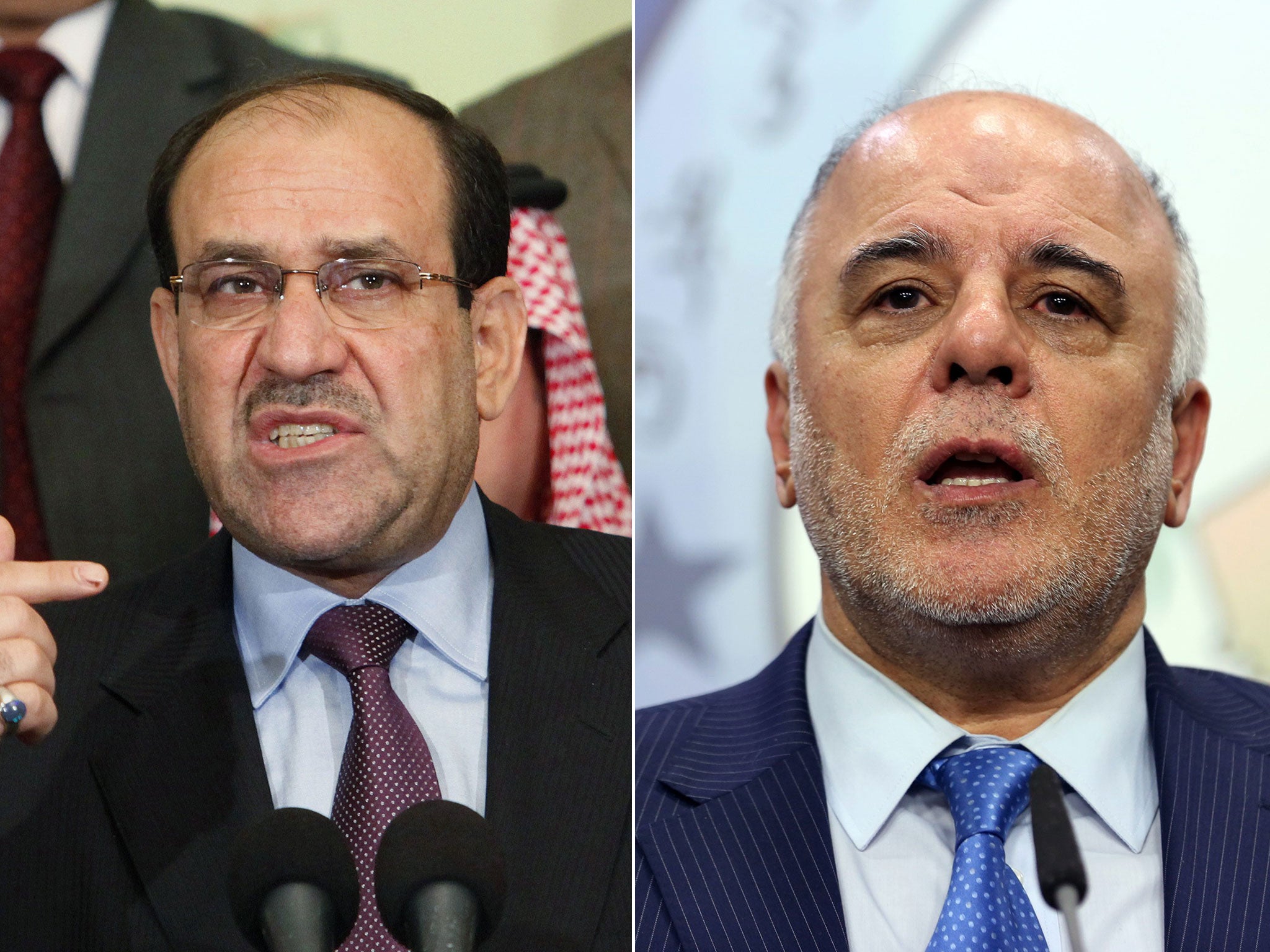Iraq crisis: Nouri al-Maliki caves in to pressure and stands down as prime minister
After initially refusing to stand down, Mr Maliki has now thrown his support behind Shia politician Haider al-Abadi

The Iraqi Prime Minister, Nouri al-Maliki, has agreed to step down after he was disowned by the United States, Iran and the UN Security Council, amid his Government’s failure to halt the advance of the extremist fighters of Isis.
Mr Maliki, a Shia Muslim, was blamed for alienating the Sunnis, pushing them into the ranks of the Isis militants, who now call themselves Islamic State. Iraq’s premier for eight years, he had insisted he would stand for a third term, despite the crisis.
On Monday, Iraq’s President, Fouad Massoum, asked a moderate Shia politician Haider al-Abadi to form the next government, but Mr Maliki refused to step down and launched a legal challenge in the constitutional court.
However, appearing on state television flanked by Mr Abadi and other Shia politicians, Mr Maliki said: “I announce before you today, to ease the movement of the political process and the formation of the new government, the withdrawal of my candidacy in favour of brother Haider al-Abadi.”
Warning of the grave “terrorist” threat from Isis, he said his decision was based on his desire to “safeguard the high interests of the country”, saying that he did not want to be the cause of any bloodshed. “I will stay a combat soldier to defend Iraq and its people,” he added. Afak television, Mr Maliki’s private network, reported that he had joined “the greatest men of history by giving up” his post.
The UN Security Council has urged Mr Abadi to move quickly to set up “an inclusive government that represents all segments of the Iraqi population and that contributes to finding a viable and sustainable solution to the country’s current challenges”.
Meanwhile the Security Council will vote today on a UK-drafted resolution that threatens sanctions against those who finance, recruit or supply weapons to insurgents in Iraq and Syria. It will also impose an asset freeze and international travel ban on six individuals suspected of having links to Isis and the al-Nusra Front.
Subscribe to Independent Premium to bookmark this article
Want to bookmark your favourite articles and stories to read or reference later? Start your Independent Premium subscription today.

Join our commenting forum
Join thought-provoking conversations, follow other Independent readers and see their replies